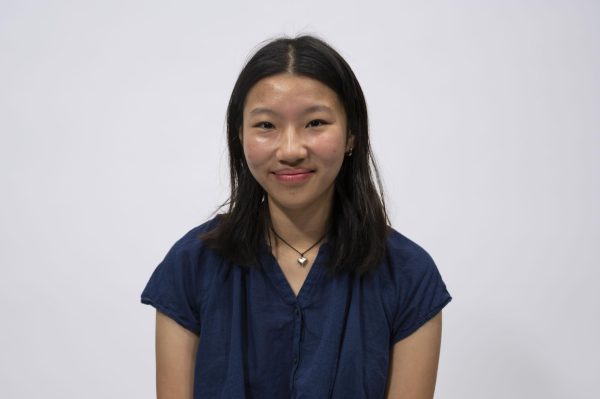In spring 2024, nearly 95% of participating Northeastern undergraduate students voted to increase the transparency of the Student Government Association’s budget allocation process for student organizations.
On Nov. 8, the Student Government Association, or SGA, which oversees how much money clubs receive from the university, published student organization funding reports for the first time in over a decade — a pivotal moment in a years-long push for increased transparency into the budget process. The reports, which SGA leaders say are part of a multi-pronged approach to make the funding allocation process more accessible, provide a generalized overview of how SGA allocated annual budgets during fiscal years, or FY, 2024 and 2025.
The FY 2025 report, which encompasses July 1, 2024, to June 30, 2025, shows SGA received 222 annual budget requests from undergraduate student organizations totaling $6.8 million. The association approved roughly $4.026 million of the requested funds to 204 organizations, with an average allocation of $19,733 and a median of $5,855, according to the document. The report also says that organizations received, on average, 7.36% more than in the previous fiscal year, and all requests that satisfied the university and SGA’s established budget criteria “received at least partial funding.”
SGA’s Executive Director of Club Finance Alexander Leblang clarified that the 18 requests that did not receive SGA funding did not meet university criteria. According to the Student Activity Fee Manual — the document outlining student organization budget regulations — groups must be in good standing with the university and meet all registration and documentation requirements to receive funding.
The recently published report provides a breakdown of the types of student organizations that were granted budgets and how much funding they received. Organizations categorized under “Signature Events & Programming” received $1.51 million, “Performing Arts & Media” organizations received roughly $886,000 and “International & Cultural” organizations received about $522,000.
In FY 2024, 171 on-campus student organizations requested annual budgets totaling $6.1 million. SGA, with access to $4.145 million, allocated $3.966 million through the annual budget process. The report, published alongside the FY 2025 document, similarly says that all organizations that met the university and SGA’s criteria received at least part of what they originally requested.
Leblang, a fourth-year business administration major, said that after publishing FY 2024 and FY 2025, SGA does not plan on publishing past reports on student organization funding.
The figures for FY 2024 and 2025 only pertain to annual budgets, which are granted at the beginning of the fiscal year to fully recognized organizations with recurring finances and completed previous spending reports.
The FY 2025 report says that SGA’s Finance Board had access to a total of $4.515 million to allocate to student organizations through either annual budgets or supplemental budgets. Supplemental budgets, the other type of funding SGA grants to student organizations, can be requested up to four times throughout the year for a maximum of $1,500 by clubs for specific purposes such as events, equipment or registration fees.
Leblang said the Finance Board plans on publishing the FY 2024 supplemental budget report in the next few months and the FY 2025 report after the fiscal year ends.
The $4.5 million total is funded by Northeastern’s student activity fee, or SAF, which is currently $174 per full semester for the 2024-25 academic year. The reports say the fee was created in 1983 by a student government referendum “with the intent to create an activity fee that would be allocated by students for students.”
Student Body President Matt Coughlin told The News that SGA worked closely with Northeastern’s Student Activities Business Office, or SABO — the university department that oversees the SAF, per its manual — to craft and publish the report.
“These reports are reviewed by our two separate entities together before release,” Coughlin, a fourth-year mechanical engineering major, said.
Coughlin also told The News that SABO prohibited SGA from disclosing budget allocation information for specific student organizations due to university policy.
“We asked SABO that exact question,” Coughlin said of SGA’s ability to disclose information for specific student organizations. “We did ask because we would like to share more, and we were told that it would be a violation of university policy.”
In a follow-up email, Leblang shared a text excerpt of the university policy.
“Student group budget information is private and access to this information is limited to the individual members of the organization and staff members,” the excerpt stated. “Although students are not permitted to have access to the University Financial System, Finance Board members are authorized to allocate funding to student groups as part of their role. They are not authorized to publicly share personal budget information of individual organizations.”
The Northeastern media relations team did not respond to a request for comment on the policy.
Coughlin also said SGA is not permitted to publicly disclose when certain organizations mismanage funds or fail to abide by regulations regarding student organization finances. The Finance Board is permitted to conduct audits of student organizations, and Leblang said the board often learns of discrepancies through SGA’s anonymous reporting form. He said most reports are equipment-based, where organizations no longer use equipment they once maintained.
“[In] most cases, the [organization] is completely fine,” he said.
Student organizations that request funding from SGA are subject to review by SGA’s Finance Board and, after the funds are spent, must provide a spending report to the board, per the SAF Manual. The Center for Student Involvement, SABO and SGA’s Division of Student Involvement are all also tasked with monitoring student organization expenditures, according to the manual.
While there were limitations on how much information SGA was permitted to publish, Coughlin, Leblang and Vice President for External Affairs Olivia Oestreicher said the reports, along with a handful of other initiatives, mark a significant step toward increased transparency.
“Transparency in the club funding process has been a priority, and something that we in SGA have been working at for a while now,” Coughlin said. “That [referendum] was written by several members of the SGA leadership team to really emphasize a sentiment that we as SGA felt and that was seen among the student body.”
The 2024 funding transparency referendum criticized the Finance Board’s “inconsistency with providing transparency into its operations and budget allocation decisions” over the past 20 years. According to the referendum, budget allocation information was publicly available prior to September 2010, but it’s not clear when SGA last made club funding information public.
The document references a 2004 Huntington News article containing details of the Finance Board’s budget allocation decisions and several 2010 pieces on then-SGA leadership’s decision to make budget information unavailable to the public.
“In his infinite wisdom, Student Body President Ryan Fox has decided to close Finance Board meetings to the public,” one letter to the editor said. “This means that unless you’re a member of the exclusive Student Government Association (SGA) Cash Club, you’ll have no say in how your Student Activity Fee (SAF) is spent.”
The initiative cites SGA meeting minutes, governing documents and procedures at other universities as evidence of a lack of transparency in Northeastern’s student government and justification for the annual reports. The document also points to several previous Huntington News editorials and reports of closed-off finance board meetings and unkept promises of budget allocation reports.
With the overwhelming vote in favor of the ballot initiative last spring, the requirement to publish budget reports was added to the SAF Manual Oct. 28 after a presentation to the SGA Senate earlier in the month, Leblang said.
“We want to make sure that [these changes] stick, per the referendum,” Leblang said. “They are now codified in the SAF Manual — written down that we will release the report.”
In addition to the reports, Coughlin, Leblang and Oestreicher, a fourth-year political science and communication studies combined major, pointed to several other efforts to enhance transparency in the budget process including a monthly newsletter, consolidation of the SGA and Finance Board websites and the offering of office hours where student organizations can discuss the budget process, expenditure restrictions or ask board members questions.
Leblang said the Finance Board has held over 200 meetings with student organizations, of which 34 were “office hour” meetings, an initiative the Finance Board officially launched in October.
The multifaceted approach, Oestreicher said, is part of a broader shift in the way SGA is attempting to communicate with students.
“I think our philosophy has changed from ‘You come to us if you have concerns,’ to ‘We come to you,’” Oestreicher said. “We want to take that proactive approach and make sure we are reliably hitting every single student on a consistent, monthly basis.”
The Huntington News is dedicated to serving the Northeastern University community with original, professional reporting and creating an environment in which student journalists can learn from one another. Support an independent, free press at Northeastern University with your donation today.












